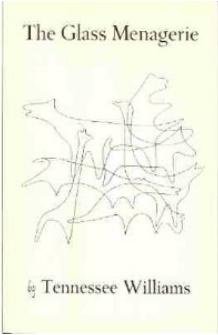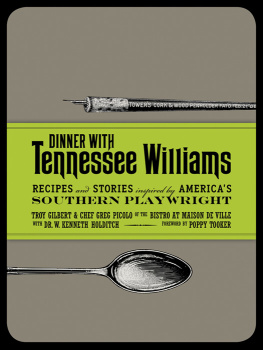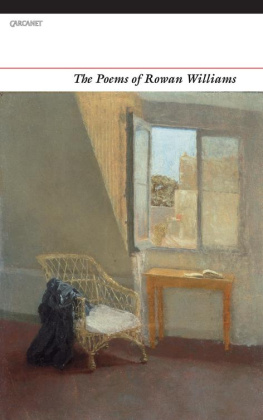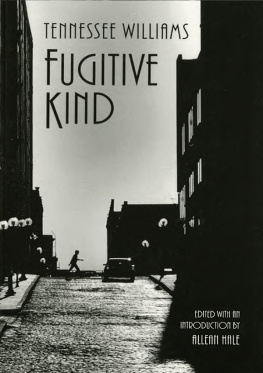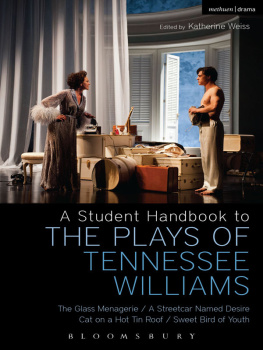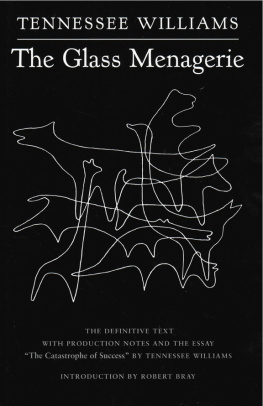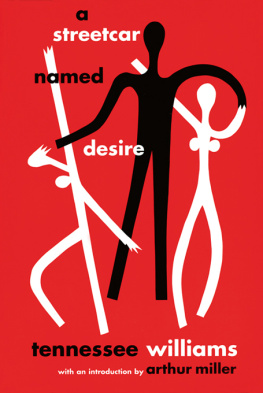Tennessee Williams

Titles in the series Critical Lives present the work of leading cultural figures of the modern period. Each book explores the life of the artist, writer, philosopher or architect in question and relates it to their major works.
In the same series
Antonin Artaud David A. Shafer
Roland Barthes Andy Stafford
Georges Bataille Stuart Kendall
Charles Baudelaire Rosemary Lloyd
Simone de Beauvoir Ursula Tidd
Samuel Beckett Andrew Gibson
Walter Benjamin Esther Leslie
John Berger Andy Merrifield
Jorge Luis Borges Jason Wilson
Constantin Brancusi Sanda Miller
Bertolt Brecht Philip Glahn
Charles Bukowski David Stephen Calonne
William S. Burroughs Phil Baker
John Cage Rob Haskins
Albert Camus Edward J. Hughes
Fidel Castro Nick Caistor
Paul Czanne Jon Kear
Coco Chanel Linda Simon
Noam Chomsky Wolfgang B. Sperlich
Jean Cocteau James S. Williams
Salvador Dal Mary Ann Caws
Guy Debord Andy Merrifield
Claude Debussy David J. Code
Fyodor Dostoevsky Robert Bird
Marcel Duchamp Caroline Cros
Sergei Eisenstein Mike OMahony
Michel Foucault David Macey
Mahatma Gandhi Douglas Allen
Jean Genet Stephen Barber
Allen Ginsberg Steve Finbow
Vclav Havel Kieran Williams
Ernest Hemingway Verna Kale
Derek Jarman Michael Charlesworth
Alfred Jarry Jill Fell
James Joyce Andrew Gibson
Carl Jung Paul Bishop
Franz Kafka Sander L. Gilman
Frida Kahlo Gannit Ankori
Yves Klein Nuit Banai
Akira Kurosawa Peter Wild
Lenin Lars T. Lih
Stphane Mallarm Roger Pearson
Gabriel Garca Mrquez Stephen M. Hart
Karl Marx Paul Thomas
Henry Miller David Stephen Calonne
Yukio Mishima Damian Flanagan
Eadweard Muybridge Marta Braun
Vladimir Nabokov Barbara Wyllie
Pablo Neruda Dominic Moran
Georgia OKeeffe Nancy J. Scott
Octavio Paz Nick Caistor
Pablo Picasso Mary Ann Caws
Edgar Allan Poe Kevin J. Hayes
Ezra Pound Alec Marsh
Marcel Proust Adam Watt
John Ruskin Andrew Ballantyne
Jean-Paul Sartre Andrew Leak
Erik Satie Mary E. Davis
Arthur Schopenhauer Peter B. Lewis
Adam Smith Jonathan Conlin
Susan Sontag Jerome Boyd Maunsell
Gertrude Stein Lucy Daniel
Igor Stravinsky Jonathan Cross
Pyotr Tchaikovsky Philip Ross Bullock
Leon Trotsky Paul Le Blanc
Richard Wagner Raymond Furness
Simone Weil Palle Yourgrau
Tennessee Williams Paul Ibell
Ludwig Wittgenstein Edward Kanterian
Virginia Woolf Ira Nadel
Frank Lloyd Wright Robert McCarter
Tennessee Williams
Paul Ibell
REAKTION BOOKS
For Tom Erhardt
Published by Reaktion Books Ltd
Unit 32, Waterside
4448 Wharf Road
London N1 7UX, UK
www.reaktionbooks.co.uk
First published 2016
Copyright Paul Ibell 2016
All rights reserved
No part of this publication may be reproduced, stored in a retrieval system, or transmitted, in any form or by any means, electronic, mechanical, photocopying, recording or otherwise, without the prior permission of the publishers
Page references in the Photo Acknowledgements
match the printed edition of this book.
Printed and bound in Great Britain by Bell & Bain, Glasgow
A catalogue record for this book is available from the British Library
eISBN: 9781780237107
Contents
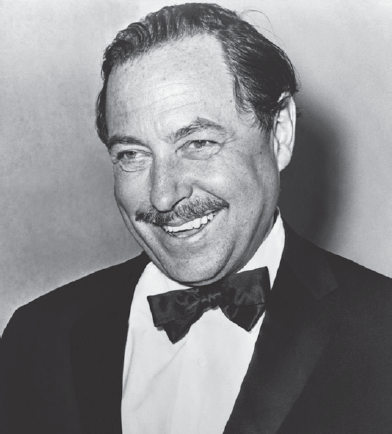
Tennessee Williams at the 20th anniversary of The Glass Menagerie opening, 1965.
Foreword
Thomas Lanier Williams III (19111983) is Americas greatest playwright, but his legacy of work belongs to the world. He is popular across the globe in Western Europe, Russia and the Far East, as well as the United States because his plays, though often set in the Deep South, have a European sensibility and a universal appeal.
This comes from the themes that are central to his most enduring works: sexual desire, nostalgia for lost youth and beauty, the importance of money, and the conflict between what we hope for in life and what it actually delivers. His ability to create memorable, impressive, yet sympathetically vulnerable female roles is a particular strength. He also overturns conventional concepts of masculinity by taking what have traditionally been thought of as female concerns the loss of youth and beauty referred to above and making them central to the personal tragedies of some of his leading male characters.
There have been a great many books and an avalanche of articles about Tennessee Williams, but, as with all great artists, the raw material of his life and the work through which he expressed himself repay any number of visits, whether by biographers or those primarily interested in his plays. These two inevitably overlap, as there can be no other playwright who so resolutely and imaginatively mined his family, his sex life and his neuroses for material. Though his work gathered many laurels, he was never content to rest upon them: he spent over forty years writing for the stage. Inevitably, during that period and in the decades since, theatrical tastes have changed, but he has never gone out of fashion. Even when his new works were being rubbished, his masterpieces were acknowledged and performed. Whether early (The Glass Menagerie; A Streetcar Named Desire) or late (Something Cloudy, Something Clear; Vieux Carr), his work compellingly portrays human frailties and our often doomed attempts to rise above them.
For someone so dedicated to art and so contemptuous of commerce, his writing displays an astute awareness of the importance of money. In his understanding of the world it formed part of a secular trinity, along with youth and good looks. Everyone eventually loses the last two, and many fail to hang on to their cash especially in the age in which he grew up, which saw the Wall Street Crash of 1929 and the Depression, when many lost the wealth that had once defined them. F. Scott Fitzgerald (who, with his wife Zelda, is at the heart of Williamss play Clothes for a Summer Hotel) wrote about the young, talented and wealthy who, despite these advantages, had crises of their own. Williams, by contrast, showed us the no-longer young, those without money or a bankable talent in an American South whose obsession with social class mirrored the European societies that had, in colonial times, established its cities, its architecture and the origins of its social mores.
Like other great American authors between the wars specifically, Fitzgerald and Ernest Hemingway Williams was an American fascinated by Europe, but he was drawn to Italy and the myths of the classical world rather than to Fitzgeralds France or Hemingways Spain. Whereas previous Americans, headed by Henry James, had concentrated on the upper strata of a European society at its zenith, Tennessee Williams saw a continent shattered by two devastating wars and was in any case interested in the damaged but decorative rather than the confident and comfortably off. It is telling that the beautiful male prostitute, Paolo, in


